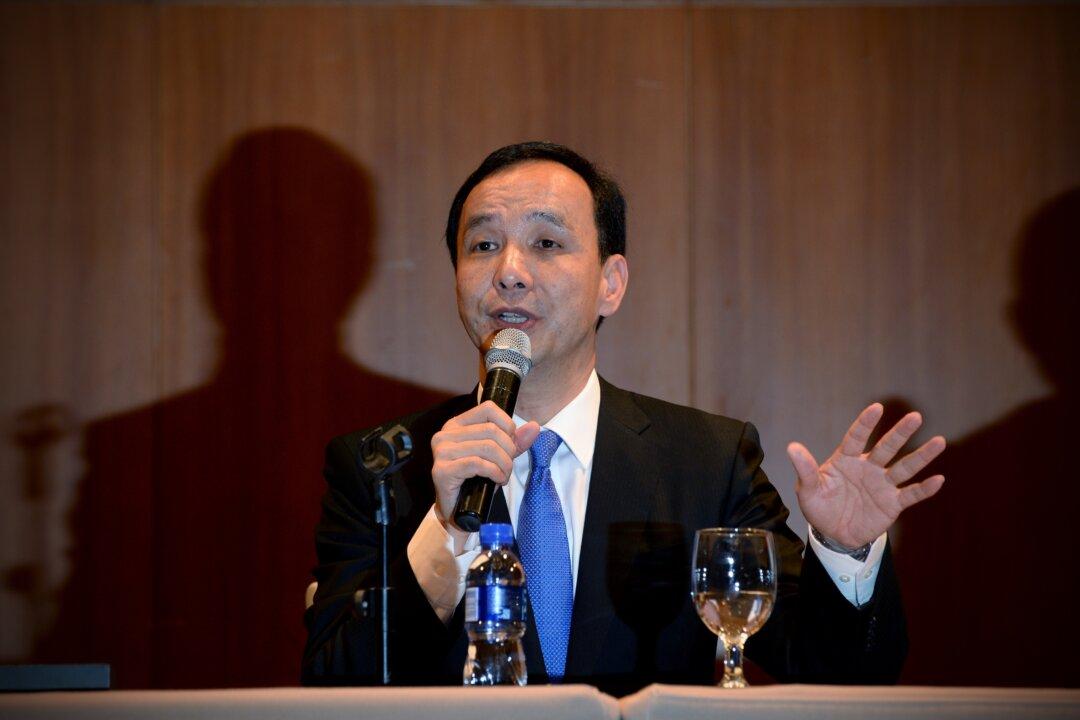The leader of Taiwan’s nationalist party is showing interest in abandoning sovereignty in exchange for business opportunities, say critics. Nationalist Chairman Eric Chu met with Chinese Communist Party head Xi Jinping on Monday where a “One China” policy was a requirement for any deal.
Xi stressed that both parties would need to use the “1992 consensus” as a precursor to any deals. Under the agreement Taiwan is required to regard itself as a part of China, but it’s supposed to allow Taiwan and the Chinese regime to interpret what the “one China” is and who has the right to govern it.
Chu caused some controversy, however, by allegedly saying the “two sides belong to one China.” For some, the statement sounded a bit too similar to the Chinese regime’s “one country, two systems” policy for governing Hong Kong.
The director of Taiwan’s Democratic Progressive Party, Chao Tien-lin, said Chu’s remarks are a step backward for the sovereignty of Taiwan, according to a report from Taiwanese television network SETN.





